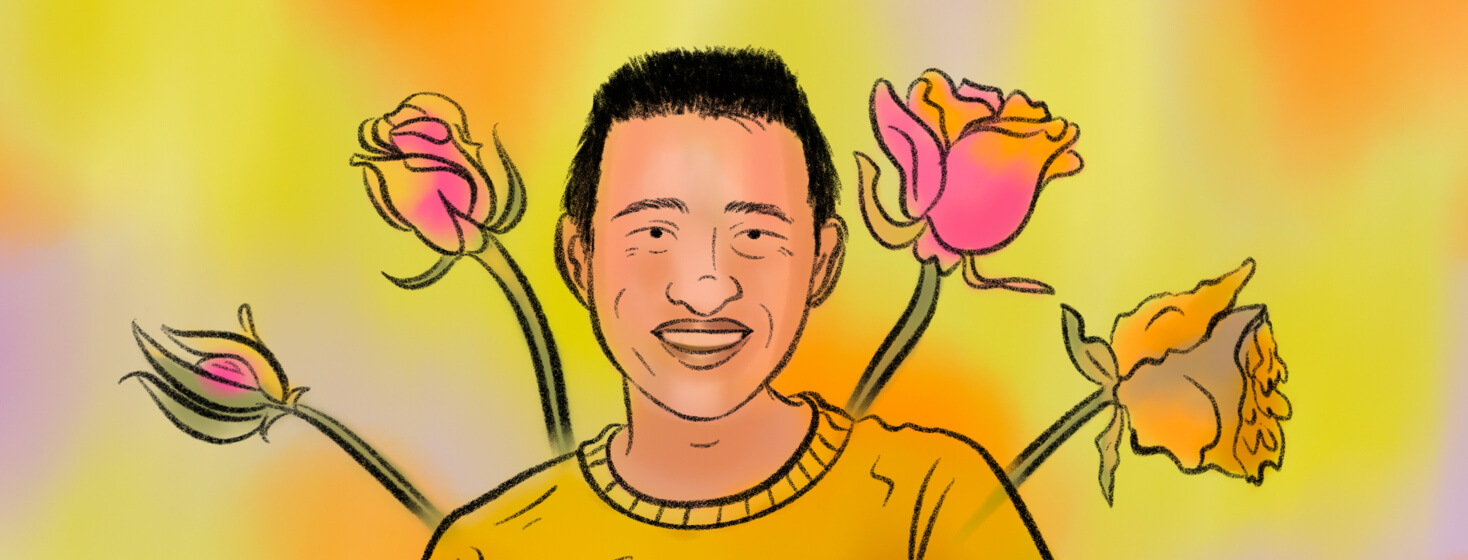Interview with Terrence Ho: End-of-Life Doula (Part II)
Terrence Ho is an end-of-life doula, working with families and loved ones of those nearing death to bring support and preparation to the end-of-life process.
In Part II of Cystic-Fibrosis.com's interview with Terrence, he explains the benefits of an end-of-life doula, how an end-of-life doula can help a family cope with end-of-life care related to cystic fibrosis, and words of advice for someone who is caring for a loved one going through end-of-life stages.
If you have not yet read Part I of Cystic-Fibrosis.com's, you can check it out here.
What are the benefits of working with an end-of-life doula? How can an end-of-life doula help a family cope with end-of-life care related to cystic fibrosis?
The benefits include being able to openly speak with someone about dying and death, creating a plan for the future, working on a legacy project so that their family and friends have something to remember the person by, having someone facilitate the conversation about dying and death with the family, giving family members respite by being with the dying person.
According to McMaster University’s Optimal Aging Portal and their research on End of Life Doula’s in Canada:
End-of-life doulas are not yet considered to be regulated health professionals, they offer non-medical support that compliments palliative and ends of life care. As needed, they can provide a compassionate presence (for example, read stories, put on music, listen to the dying person and their loved ones, hold their hands, soothe them), help with decision-making by giving information, help navigate health and social services to meet needs, or help loved ones to come to terms with imminent death.
All these benefits of working with a doula would help a family cope with end-of-life care related to cystic fibrosis or other conditions.
For someone who is currently caring for a loved one going through the end-of-life stages, what words of advice would you share with them?
In the book Bold Spirit Caring for the Dying, I share the following things that would make a difference when caring for a loved one at the end of life. The four things are; communicate, understand, prepare and support also known as CUPS!
Communicate.
This includes speaking with the health care team, family and friends about what is going on and what support your loved one and your family needs. What I did was to ensure the healthcare team was up to date with the status of my brother and mom, and to let family and friends know any changes that may occur.
Our conversations included speaking about death openly with family and friends to give space to everyone, as we all grieve differently.
Understand.
This means taking the time to be curious with our loved ones around their fears, pains or beliefs. I took the time to check in regularly with my mom and brother, to understand what they were thinking and feeling. And to create the space for them to share.
There were things I didn’t fully understand or empathize with but did my best to listen without judgement. This one is difficult because we want our loved ones to not be suffering. The key is to listen and be curious.
Prepare.
This includes planning with our loved ones so that we as caregivers would know what our loved one’s wishes are at the end of life with a living will/advance healthcare directive (in the US) or advanced care plan (in Canada) and after death through a will. I was able to convince my mom when she was diagnosed with stage four lung cancer that completing an advanced care plan would be valuable so that I can execute her wishes.
The plan included her wishes of where she preferred to die, what her environment would be like, who she would like by her side and other instructions. It gave me peace of mind that I was able to fulfill my mom’s wishes and also eliminated the need to make critical decisions when I was in emotional distress.
Support.
This means reaching out to family and friends for help. People who care for us want to help and as caregivers, we may have a difficult time asking. But what a difference it made when I did!
This could be for them to spend time with the person, bring meals, or just do simple errands. The other form of help that I found immensely valuable was receiving mental health support.
I was lucky to have access to a therapist, counsellor and multiple support groups over the course of 8 months before and after my mom’s death. I recommend caregivers seek out these resources and accept these forms of support.
By remembering these four things, hopefully, it’ll make the experience of caring for your loved one during the dying process a little easier.
Have you or someone you know received support from an end-of-life doula?

Join the conversation